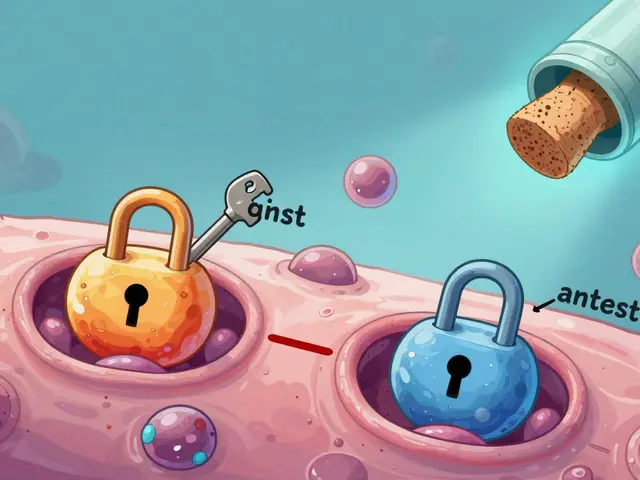Role: How medicines, tests and services actually help your health
Want to know why a doctor chose a specific drug or why a service exists? The "role" tag collects articles that explain what treatments, tests, and online services do — in plain language. You’ll find pieces on how antibiotics work, what pain or mood medicines are for, why ventilation prevents infections, and how telehealth or online pharmacies fit into care.
How to judge a drug’s role
Start with the goal: symptom relief, cure, prevention, or testing. For example, an antibiotic like erythromycin treats bacterial infections; it’s not useful for viruses. A drug such as Depakote can prevent migraines and control seizures, while alpelisib is used in a specific cancer setting with careful monitoring. Knowing the goal helps you ask the right questions.
Next, weigh benefits vs risks. Every medicine has side effects and interactions. Read short guides about interactions (like the alpelisib article) or pharmacokinetics (like ibrutinib) so you know what to expect and when to get labs or medical follow-up. Ask your prescriber: what improvement should I see, how soon, and what signs mean I should stop?
Think about alternatives. Several posts explain alternatives — for example, Ventolin or Symbicort alternatives, Topiramate substitutes, or other options to Wellbutrin. Alternatives matter when side effects, cost, or availability are obstacles. Use those articles to create a list of options to discuss with your clinician.
Practical safety and service tips
Buying medicines online? Read the safety guides first. Articles on online pharmacies and specific sites walk you through how to check legitimacy, when you need a prescription, and which red flags to avoid. If cost is a factor, see comparisons like mail-order vs local pharmacy for a 90-day Synthroid supply.
Monitor and communicate. If a treatment needs blood tests or has known interactions, set reminders and keep a list of all medications and supplements. Small changes — timing with food, avoiding certain drugs — can matter a lot. For complex medicines (chemo agents, strong antivirals), the posts explain what labs and side effects to watch for.
Use the tag to find focused reads: natural remedies (turmeric, policosanol), enzyme therapies (pancrelipase), and condition-specific roles (Kaposi sarcoma, gallstones and heartburn). Each article aims to tell you the real-world role of a treatment or service and give practical next steps.
If you’re deciding about a new medication, start with the role: Why this drug? What will it change? What are the downsides and the alternatives? That way you make choices that fit your health goals and daily life.

Managing Hyperprolactinemia: The Role of Cabergoline
In my recent research on managing Hyperprolactinemia, I discovered the important role of a medication called Cabergoline. Hyperprolactinemia is a condition where the body produces too much prolactin hormone, leading to various health issues. Cabergoline works by reducing the production of prolactin, helping to alleviate symptoms and improve overall health. Many patients have found relief through this medication, allowing them to live a more normal life. I believe it's essential to spread awareness about Cabergoline and its effectiveness in managing Hyperprolactinemia.
read more




